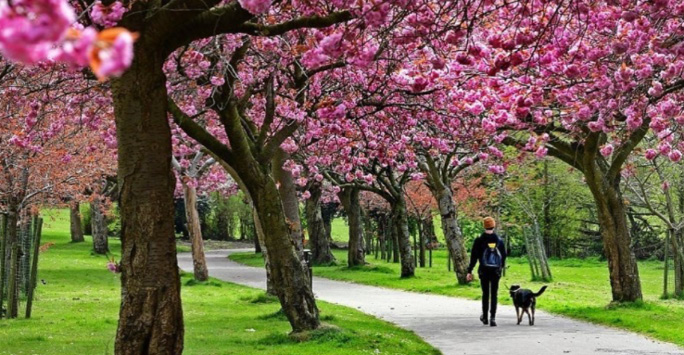
This week, I have enjoyed welcoming prospective students to their Applicant Discovery evening, and seeing afresh all that is brilliant about studying at Liverpool, through their eyes.
As they make plans for degrees and, at the other end of the course, our Y5 make their plans for exciting careers, I find myself reflecting on the phrase that School Alumnus Dr Ilyas Khattak shared: John Lennon’s ‘Life is what happens when you are busy making other plans’.
The medical life ahead of our incoming students is a long road, but it is such a colourful route, with unexpected discoveries and friendships along the way, and new opportunities to take a chance on.
If we focus only on the ‘goal’ at the end of the road, we risk missing the beauty of the journey.
Indeed, taking time to appreciate the ‘beauty’ around us whether in nature, or in the kindness of others, sustains us for the bumps in the journey.
Like our applicants hoping for good grades, many of us place store on ‘success’: in exams, in competitions, in FPAS points! Yet, especially this year, we have seen that success is getting up when you don’t need to be in a lecture theatre, or getting a laugh from a patient who is nervous about vaccination. Indeed, I recently heard the opposite of ‘success’ redefined as ‘boredom’ rather than ‘failure’. Seen in that light, all medics can be successful. The medical life may be busy, challenging, frustrating, emotional, but the privilege to connect with people, and address whatever is troubling them today, is never boring!
And after looking at the fantastic entries for the ‘Da Vinci’ Competition from some of you, I am prompted to recall Picasso’s quote,
The meaning of life is to find one’s gift; the purpose of it is to give it away.
This year, I have been greatly inspired by the many ways that you have found, to share the array of gifts you have, and support each other and the community around us. I hope you will recognise how very talented you are, and how these personal talents, and your capacity to connect and to care, can be what is most important to your future patients.
And as we all look forward to much awaited freedoms and the opportunity to meet again, let’s spare a thought for all our colleagues in our clinical family worldwide, who despite the intense pressures and losses all around them, remain committed to patient care.